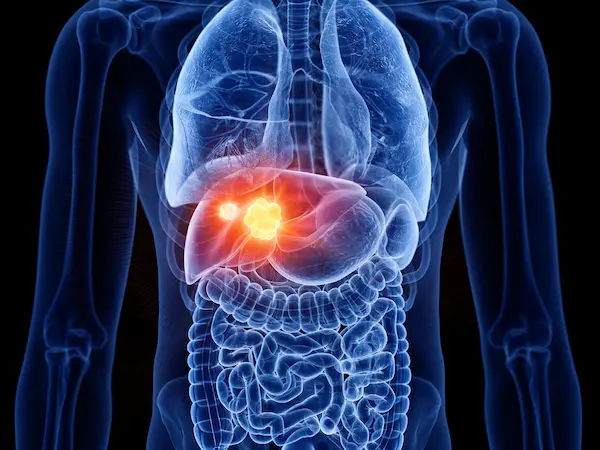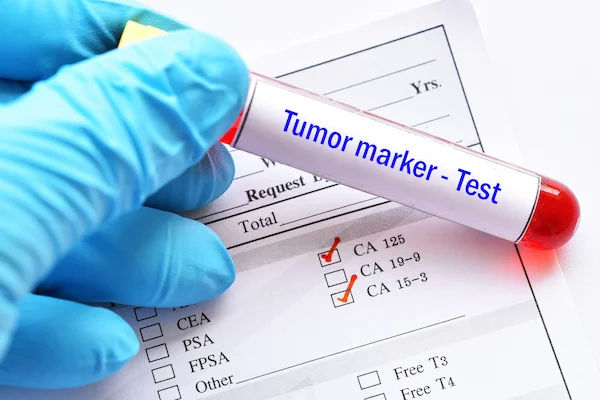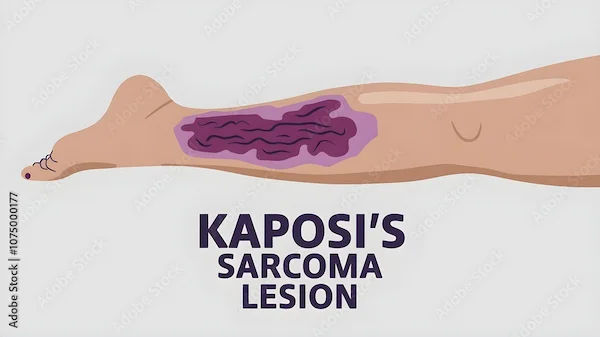Precision Oncology In Cancer Care
Let's understand how precision oncology continues to transform cancer care by tailoring treatments to individual genetic profiles. Also, explore more about advancements such as next-generation sequencing, biomarker testing, and AI integration that enhance outcomes and reduce side effects.

Written by
Last updated on 13th Jan, 2026
Precision oncology is a cancer treatment technique that ensures a treatment course is specially designed to suit each patient's unique form of cancer. It considers a patient's genetics, identifies specific genetic mutations or alterations driving tumour growth, and designs a treatment protocol based on these findings.
Owing to its ability to improve the quality of life and chances of survival, precision oncology holds great importance in the modern treatment procedure. Read on to know in detail.
Understanding Cancer and Its Variability
Cancer is a genomic disorder and is often driven by the inheritance of genomic variations. Carcinogenesis may also occur due to the accumulation of several somatic genetic events like rearrangements, mutations, or amplification, which may result in excessive cell proliferation, the production of new capillaries from existing blood vessels, and so on.
Precision oncology has better treatment outcomes as compared to the conventional treatments for cancer. Molecular genetic analysis helps in the accurate identification of specific, actionable genomic abnormalities, which can then help determine the accurate therapy that can target the molecules. This, if carried out accurately, can help in dramatic subversion of the growth of a tumour and improve the chances of patient survival.
Role of Genomics in Precision Oncology
Cancer genomics plays an important role in precision medicine by helping define the cancer types and subtypes based on the genetics of individuals. This can help in more precise diagnosis, thereby offering a personalised treatment strategy. Genetic profiling of tumours is often known as genomic testing or molecular profiling. The test is conducted using a sample from the blood or tumour, sometimes even both.
Sometimes, tumour genomic tests incorporate the use of DNA sequencing to provide a more detailed view of the kind of cancer. This includes assessing the type of tumour, the best treatment choices based on the genetic profile, and the identification of drugs that will best work for the diagnosed cancer. It can also provide doctors insights about whether they should proceed with surgery or radiation therapy.
Personalised Treatment Plans
Precision medicine allows surgical oncologists to curate treatment plans specially designed to suit the unique needs of patients. Here’s how precision medicine helps healthcare professionals:
Identification of people who might be exposed to the risk of cancer.
Early detection of cancer and its accurate diagnosis.
Determine the best treatment option to cure a certain kind of cancer.
Evaluate the effectiveness of the treatment.
Advances in Technology and Methodology
Technological innovations have revolutionized precision oncology, enabling more accurate diagnoses and personalised treatments. Let's explore a few such key advancements.
1. Next-Generation Sequencing (NGS)
Owing to its ability to assess the molecular profile of a tumour specimen, next-generation sequencing has transformed the landscape of clinical testing in oncology. It allows accurate and fast sequencing of several genes at a time.
2. Biomarker Discovery and Testing
In cancer research and development of drugs, cancer biomarkers play an important role and guide the decision-making process. There are two main types of biomarkers:
Disease-related biomarkers: These help in the identification of patients with cancer, risk stratification, cancer staging, and predicting disease outcomes.
Drug-related biomarkers: These provide important information about improvement and survival after the clinical intervention.
Benefits and Limitations of Precision Oncology
Precision oncology is an advanced and successful approach to cure cancer. A precise diagnosis and treatment plan can be curated with the help of diagnostic imaging tools, targeted therapies, and detailed genomic tests. Personalised cancer medicine helps healthcare professionals approach cancer treatment from different angles, with a complete focus on precision.
Here’s why precision oncology is beneficial for improving treatment outcomes:
Easy detection and pinpointing of where the cancer exactly is.
Determining the aggressiveness of cancer.
Tests like liquid biopsies and sequencing panels help determine the mutations that are driving the cancer.
Easy to incorporate targeted therapies for better treatment outcomes.
Less invasive treatment techniques using targeted therapies have less severe side effects as compared to conventional treatments.
However, despite the benefits, challenges about the accessibility of this technique and its cost make it difficult for patients with inadequate means to avail of it.
Integration into Clinical Practise
The integration of precision oncology into clinical practice emphasises collaboration and innovation. Let's explore how.
Collaboration Between Oncologists and Geneticists
In the wake of these advanced approaches to curing cancer, interprofessional collaboration is gradually becoming important. Precision oncology helps reshape cancer care by increasing the use of genomic profiling for the diagnosis of cancer and its treatment. An in-depth understanding of the genetic features of the tumour and its actionable alterations is useful for choosing the most appropriate targeted therapies and improving the survival rates of patients.
Genomic profiling helps identify the different cancer-related genes and rare mutations that may be difficult to identify through conventional methods of testing.
Incorporating Data Analytics and AI
Personalisation of medicine requires the processing of large datasets in order to determine the particular molecular patterns which can form the basis of decisions regarding personalised patient care. However, analysing such large datasets can be time-consuming.
The use of AI and ML technologies for analysing these huge datasets can prove to be beneficial.
Future Directions and Innovations
Owing to its vast acceptance, the future scope for precision oncology is tremendous. Know how:
Due to the greater efficiency of trials being conducted through precision oncology, more people will get access to advanced medical technologies.
This will also facilitate research and development of drugs, as new drugs can be tested and approved faster. New drugs that can target the different mutations can be made available to patients quickly.
When patients receive personalised care right from the beginning of the treatment, they can recover quickly. This results in accurate treatment and faster recovery.
Patient and Ethical Considerations
With the advancement in treatment and patient care using precision oncology, there is a need for significant stress on the patient and ethical considerations, particularly around informed consent and genetic privacy. Patients must fully understand the implications of genomic profiling, including the potential for discovering incidental findings, hereditary risks, and the use of their data in research. Healthcare facilities should ensure genetic privacy to prevent misuse.
Additionally, socioeconomic disparities pose challenges to equitable access to precision care. The high expenses of genomic testing, targeted therapies, and clinical trials often hinder those with limited financial resources from availing of these services. To address these issues, there is a need for implementing policies that can improve affordability, education, and inclusivity which ensure that all patients benefit from advancements in precision oncology.
Conclusion
Precision oncology enhances diagnostic accuracy, treatment efficacy, and patient outcomes and also minimises side effects. Advances like next-generation sequencing, biomarker testing, and AI integration are driving innovation, enabling precise and timely interventions.
However, challenges such as high costs, accessibility, and ethical concerns related to genetic privacy and informed consent must be addressed to ensure equitable access. By fostering collaboration, advancing research, and implementing supportive policies, precision oncology has the potential to reshape cancer care and improve survival rates for all patients.
Consult Top Oncologists
Consult Top Oncologists

Dr Gowshikk Rajkumar
Oncologist
10 Years • MBBS, DMRT, DNB in Radiation oncology
Bengaluru
Apollo Clinic, JP nagar, Bengaluru

Dr.sanchayan Mandal
Medical Oncologist
17 Years • MBBS, DrNB( MEDICAL ONCOLOGY), DNB (RADIOTHERAPY),ECMO. PDCR. ASCO
Kolkata
Dr. Sanchayan Mandal Oncology Clinic, Kolkata

Dr. Raja T
Oncologist
20 Years • MBBS; MD; DM
Chennai
Apollo Hospitals Greams Road, Chennai
(225+ Patients)

Dr. Sanchayan Mandal
Medical Oncologist
17 Years • MBBS, DrNB( MEDICAL ONCOLOGY), DNB (RADIOTHERAPY),ECMO. PDCR. ASCO
Kolkata
MCR SUPER SPECIALITY POLY CLINIC & PATHOLOGY, Kolkata

Dr. Harsh J Shah
Surgical Oncologist
15 Years • MS, MCh (GI), DrNB (GI)
Ahmedabad
Apollo Hospitals Gandhinagar, Ahmedabad



.webp)
